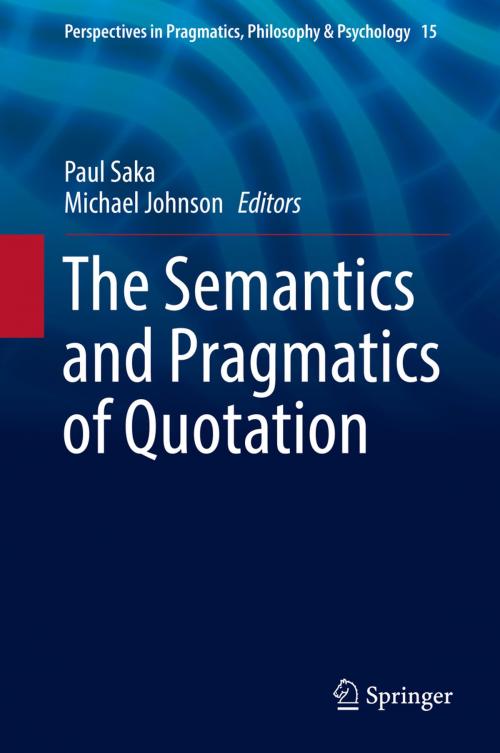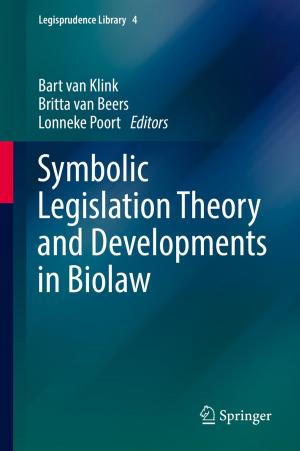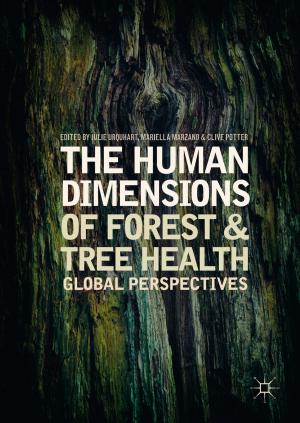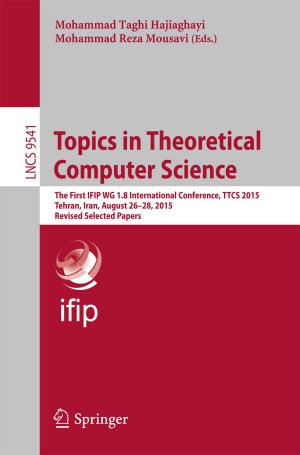The Semantics and Pragmatics of Quotation
Nonfiction, Religion & Spirituality, Philosophy, Reference, Reference & Language, Language Arts, Linguistics| Author: | ISBN: | 9783319687476 | |
| Publisher: | Springer International Publishing | Publication: | December 7, 2017 |
| Imprint: | Springer | Language: | English |
| Author: | |
| ISBN: | 9783319687476 |
| Publisher: | Springer International Publishing |
| Publication: | December 7, 2017 |
| Imprint: | Springer |
| Language: | English |
The chapters in this volume address a variety of issues surrounding quotation, such as whether it is a pragmatic or semantic phenomenon, what varieties of quotation exist, and what speech acts are involved in quoting. Quotation poses problems for many prevailing theories of language. One fundamental principle is that for a language to be learnable, speakers must be able to derive the truth-conditions of sentences from the meanings of their parts. Another popular view is that indexical expressions like "I" display a certain fixity -- that they always refer to the speaker using them. Both of these tenets appear to be violated by quotation.
This volume is suitable for scholars in philosophy of language, semantics, and pragmatics, and for graduate students in philosophy and linguistics. The book will also be useful for researchers in other fields that study quotation, including psychology and computer science.
The chapters in this volume address a variety of issues surrounding quotation, such as whether it is a pragmatic or semantic phenomenon, what varieties of quotation exist, and what speech acts are involved in quoting. Quotation poses problems for many prevailing theories of language. One fundamental principle is that for a language to be learnable, speakers must be able to derive the truth-conditions of sentences from the meanings of their parts. Another popular view is that indexical expressions like "I" display a certain fixity -- that they always refer to the speaker using them. Both of these tenets appear to be violated by quotation.
This volume is suitable for scholars in philosophy of language, semantics, and pragmatics, and for graduate students in philosophy and linguistics. The book will also be useful for researchers in other fields that study quotation, including psychology and computer science.















